

Charles Rollin (30 January 1661 in Paris - 14 December 1741 in Paris) [1] was a French historian and educator.


Charles Rollin (30 January 1661 in Paris - 14 December 1741 in Paris) [1] was a French historian and educator.
Rollin was the son of a cutler, and at the age of 22 was made a master in the Collège du Plessis. In 1694 he was rector of the University of Paris, [2] rendering great service among other things by reviving the study of Greek. He held that post for two years instead of one, and in 1699 was appointed principal of the Collège de Beauvais. [3]
Rollin held Jansenist principles, and even went so far as to defend the miracles supposed to be worked at the tomb of François de Paris, commonly known as Deacon Paris. Unfortunately his religious opinions deprived him of his appointments and disqualified him for the rectorship, to which in 1719 he had been re-elected. It is said that the same reason prevented his election to the Académie française, though he was a member of the Academie des Inscriptions. Shortly before his death he protested publicly against the acceptance of the bull Unigenitus . [4]
Rollin's literary work dates chiefly from the later years of his life, when he had been forbidden to teach. His once famous Ancient History (French : Histoire Ancienne, 12 vols., Paris, 1730–38) and the less generally read Roman History [5] (Histoire Romaine, only five of nine volumes finished by the time of his death) were avowed compilations, uncritical and somewhat inaccurate. But they instructed and interested, generation after generation. A more original and really important work was his Treatise on Education (Traité des Études, Paris, 1726–31), which contains a summary of what was even then a reformed and innovative system of education, discarding the medieval traditions that had lingered in France, [4] emphasizing the study of national history after dropping Latin for vernacular in textbooks. Rollin himself didn't begin writing in French until age 60.
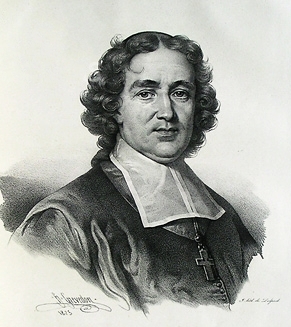
Esprit Fléchier was a French preacher and author, Bishop of Nîmes from 1687 to 1710.

Jacques Nicolas Augustin Thierry was a French historian. Although originally a follower of Henri de Saint-Simon, he later developed his own approach to history. A committed liberal, his approach to history often introduced a romantic interpretation, although he did engage in research of primary sources. He nevertheless was recognised as a significant historian of the evolution of communal governance.

François Auguste Marie Mignet was a French journalist and historian of the French Revolution.

Charles-Forbes-René, comte de Montalembert was a French publicist, historian and Count of Montalembert, Deux-Sèvres, and a prominent representative of liberal Catholicism.

Ernest Lavisse was a French historian. He was nominated for the Nobel Prize in Literature five times. Lavisse is also known for being one of the main creator of the roman national, thanks to his history schoolbooks.

Henri-Alexandre Wallon was a French historian and statesman whose decisive contribution to the creation of the Third Republic led him to be called the "Father of the Republic". He was the grandfather of psychologist and politician Henri Wallon.

Alexis Paulin Paris was a French scholar and author.

François Just Marie Raynouard was a French dramatist and linguist.

Jean Victor Duruy was a French historian and statesman.
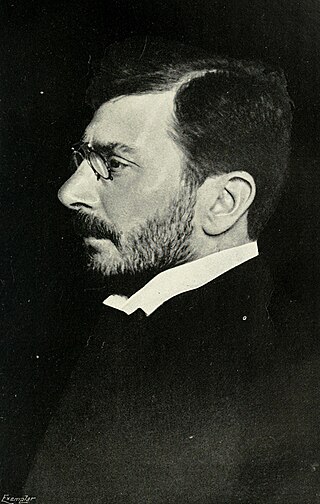
Ferdinand Vincent-de-Paul Marie Brunetière was a French writer and critic.
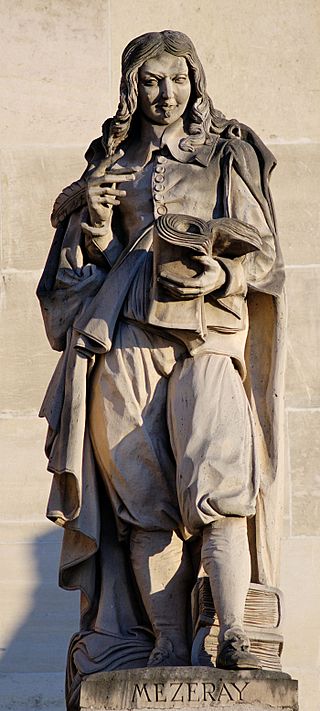
François Eudes de Mézeray was a French historian.
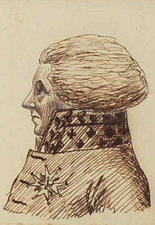
Henri-Cardin-Jean-Baptiste d'Aguesseau, marquis d'Aguesseau, grandson of the French chancellor Henri François d'Aguesseau, was advocate-general in the parlement of Paris and deputy in the Estates-General. Under the Consulate he became president of the court of appeal and later minister at Copenhagen. He was elected to the Académie française in 1787.

François Lenormant was a 19th-century French Hellenist, Assyriologist, and archaeologist.
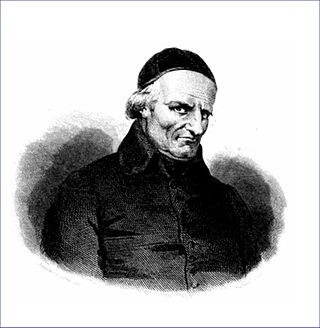
Louis-Pierre Anquetil was a French historian.

Claude Fleury, was a French priest, jurist, and ecclesiastical historian.
The 12th-century chanson de geste of Garin le Loherain, together with the slightly later Girbert de Metz, form the core and initial parts of the so-called Lorraine cycle, which was expanded in the 13th century by a prequel and three sequels. The cycle is one of the fiercest and most sanguinary narratives left by the trouvères. This local cycle of Lorraine appears to have a historical basis. Although the actions as recorded cannot be identified with specific historical events, the poems are valuable depictions of the savage feudal wars in the 11th and 12th centuries.

Henri Martin was a French historian, who was celebrated in his own day but whose modern reputation has been eclipsed by that of his contemporary, the equally passionate Jules Michelet, whose works have often been reprinted. After publishing a few novels, Martin devoted his life to the study of the history of France, writing Histoire de France, a formidable work in 15 volumes (1833–1836). He later brought the history down to 1789 in the 4th edition, and received from the Institut de France 20,000 francs as a prize in 1869. The Avenue Henri-Martin in Paris is named after him.
Jean Michel Constant Leber was a French historian and bibliophile.

Jean-Baptiste Bourguignon d'Anville was a French geographer and cartographer who greatly improved the standards of map-making. D'Anville became cartographer to the king, who purchased his cartographic materials, the largest collection in France. He made more than 200 maps during his lifetime, which are characterized by a careful, accurate work largely based on original research. In particular, D'Anville left unknown areas of continents blank and noted doubtful information as such, contrary to the lavish maps of his predecessors. His maps remained the reference point in cartography throughout the 19th century and were used by numerous explorers and travellers.

Louis Ferdinand Alfred Maury was a French scholar and physician, important because his ideas about the interpretation of dreams and the effect of external stimuli on dreams pre-dated those of Sigmund Freud. He is mentioned by Freud in The Interpretation of Dreams, and by Sebastian Faulks in Human Traces. He coined the term hypnagogic hallucination and reported a dream that famously inspired Salvador Dalí's painting Dream Caused by the Flight of a Bee Around a Pomegranate a Second Before Awakening. Alfred Maury was contemporary with Hervey de Saint Denys and the two dream researchers were in disagreement with each other.